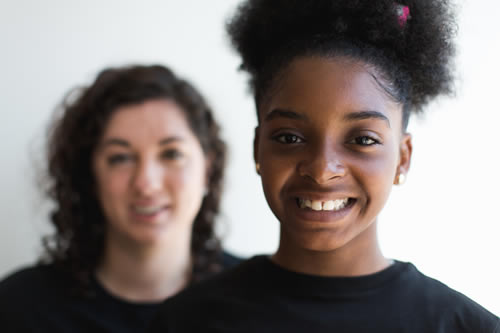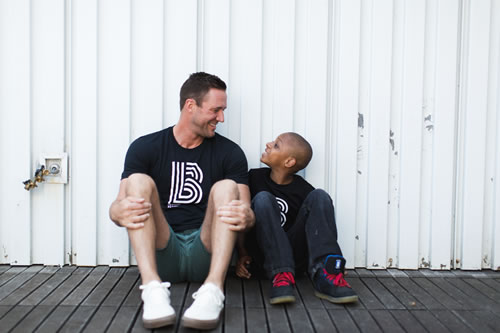ENROLL A CHILD
THE RESULTS
Researchers found that after 18 months of spending time with their Bigs, the Little Brothers and Little Sisters, compared to those children not in our program, were:
LESS LIKELY TO BEGIN USING ILLEGAL DRUGS
LESS LIKELY TO BEGIN USING ALCOHOL
LESS LIKELY TO SKIP SCHOOL
LESS LIKELY TO SKIP A CLASS
LESS LIKELY TO HIT SOMEONE
They also found that the Littles were more confident of their performance in schoolwork and getting along better with their families.
“These dramatic findings are very good news, particularly at a time when many people contend that ‘nothing works’ in reaching teenagers,” said Gary Walker, then-President of Public/Private Ventures. “This program suggests a strategy the country can build on to make a difference, especially for youth in single-parent families.”
The study found that Big Brothers Big Sisters’ matches consistently spend more time together, and continue as a match for longer periods, than those in other mentoring programs that Public/Private Ventures had studied. Big Brothers Big Sisters programs were found to “focus less on specific problems after they occur, and more on meeting youths’ most basic developmental needs.”
The matches that P/PV researchers observed shared everyday activities: eating out, playing sports or attending sports events, going to movies, sightseeing, and just hanging out together.
But what mattered to the children were not the activities. It was the fact that they had a caring adult in their lives. Because they had someone to confide in and to look up to, they were, in turn, doing better in school and at home. And at a time in their lives when even small choices can change the course of their future, the Littles were also avoiding violence and substance abuse.
Public/Private Ventures, a national research organization with more than 30 years of experience in studying child development and social service issues, conducted the independent research. The study was funded by the Lilly Endowment, the Commonwealth Fund, the Pew Charitable Trusts, and an anonymous donor.
BBBS of Jefferson City
Knowles YMCA Annex
424 Stadium Blvd
Jefferson City, MO 65101

Copyright 2019-. Big Brothers Big Sisters of Jefferson City. All rights reserved.
Website design and hosting by MSW Interactive Designs LLC. We put the web to work for you.










